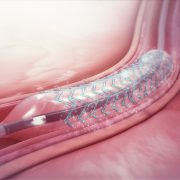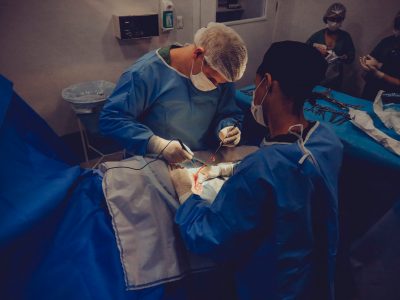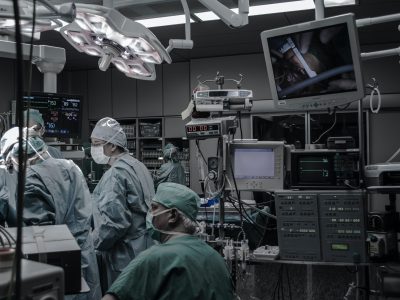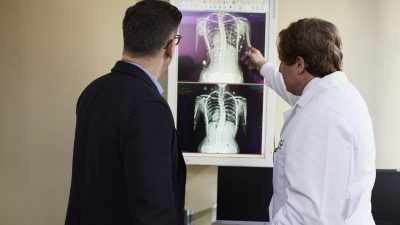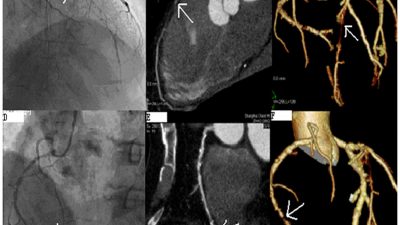Are Ambulatory Surgery Centers equipped and ready for PCI? Our Quality Matters News Brief takes a forward look at potential developments regarding PCI in ASCs and Advance Practice Provider -led cardiovascular care initiatives. Plus, we find some quality considerations of NP-led cardiac care. But first, we summarize the big story getting coverage in the New York Times—results from the ISCHEMIA trial.
Surgery for Blocked Arteries Is Often Unwarranted, Researchers Find – New York Times
Highly publicized results from the ISCHEMIA trial were even picked up by the New York Times, with the large federal study showing optimal medical therapy with drugs alone to be as effective as bypass or stenting procedures on a number of primary endpoints. Better outcomes did result from angiography followed by PCI or CABG on the endpoint of angina relief where patients presented with severe chest pain and blockages.
Cost is a consideration that cannot be ignored in this case, where many patients may receive expensive stents or bypass surgeries even when they do not report chest pain. “The nation could save more than $775 million a year by not giving stents to the 31,000 patients who get the devices even though they have no chest pain,” said Dr. Judith Hochman of NYU Langone Health to the New York Times. Read more »
You may also want to refer to TCTMD’s coverage of the story which is lengthy but includes a variety of expert perspectives. “All of the experts who spoke with TCTMD said they were not particularly surprised by the results, but all of them had caveats,” writes TCTMD’s Shelley Wood. Read on TCTMD – ISCHEMIA: Invasive Strategy No Better Than Meds for CV Events »
ACC, AHA Push for Legislation that Would Expand Access to Cardiac Rehab Programs – Cardiovascular Business
Bipartisan legislation was introduced in both the U.S. House and Senate designed to expedite expansion of cardiac and pulmonary rehabilitation services by authorizing advanced practice providers—PAs, NPs and clinical nurse specialists—to begin supervising this care immediately, as opposed to previous legislation which slated this expansion for 2024. Both the American College of Cardiology and the American Heart Association voiced their public support for this bill. Read more »
Analyzing Nurse Practitioner-Led Cardiovascular Care – Clinical Advisor
On a related note, recent analysis published in the Journal of Advanced Nursing argues the need for further research related to nurse practitioner-led cardiovascular care across the board. What little evidence does exist suggests no significant statistical differences on a number of endpoints when NPs lead care. “While incorporating NPs into CV care has been welcome, little is known about the outcomes of care,” stated the investigators. Read more »

Are ASCs Ready for Cardiovascular Procedures in 2020? 6 Insights from 2 Executives – Becker’s ASC Review
This Q&A from Becker’s is a timely one, as CMS will begin to reimburse certain angioplasty and stenting procedures in Ambulatory Surgery Centers on January 1, 2020. But according to Tony Lafata and Kelly Bemis of National Cardiovascular Partners, most ASCs are not prepared for this expansion. Will we see much more PCI in ASCs in 2020? One question, in particular, jumped out at us: “How can ASCs ensure that patients undergoing PCI receive the same quality of care as patients receiving PCI in the hospital outpatient setting?” Read more »
Accreditation for Cardiovascular Excellence Can Ensure Quality PCI in ASCs
This Becker’s Q&A points out crucial quality considerations when it comes to PCI in ASCs—namely, ensuring the team is highly experienced and patient selection protocols are up to standard. Accreditation for Cardiovascular Excellence can help organizations ensure their ASCs are properly equipped, prepared and qualified to perform PCI with quality outcomes. Meeting our openly available CathPCI standards is a major signifier of quality PCI—and the supportive ACE accreditation process can help sites meet them. ACE standards have even been recognized by Pennsylvania and Michigan for cath labs without on-site surgical backup—the only two states requiring this level of review for waivers.

